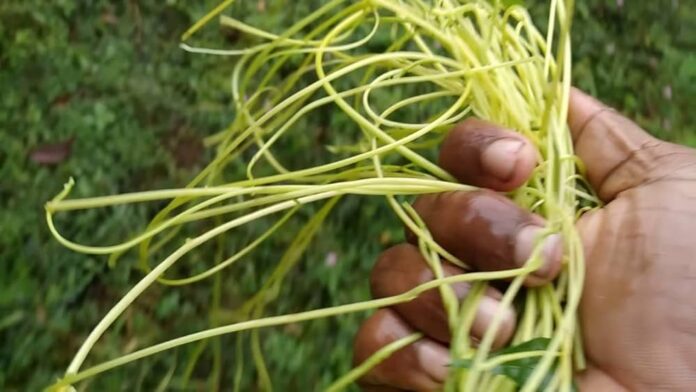Introduction

Dodder, commonly known as Aftimoon in some cultures, is a parasitic plant that has been used in traditional medicine for centuries. It belongs to the genus Cuscuta, and its species are found in various parts of the world, often growing on other plants. Despite its parasitic nature, Dodder has been utilized in alternative medicine due to its potential health benefits. This article explores the forms, benefits, and side effects of Dodder.
Forms of Dodder (Aftimoon)
Dodder can be found in various forms, primarily as dried or powdered plant material, but it can also be consumed as a liquid extract or in capsules. It may be prepared in several ways depending on the culture or the condition being treated. Here are the common forms:
- Dried Plant: The entire plant can be dried and used in herbal teas or decoctions.
- Powdered Form: The dried plant is finely powdered and added to formulations or taken directly.
- Tinctures/Extracts: Liquid extracts of Dodder are often more potent and may be prescribed for specific health conditions.
- Capsules/Tablets: These contain concentrated Dodder extracts in a convenient form for consumption.
Benefits of Dodder (Aftimoon)

Dodder has been credited with several medicinal properties. It is commonly used in traditional medicine systems for its health-promoting effects. Some of the key benefits of Dodder include:
- Enhances Fertility: Dodder is believed to support reproductive health, particularly in both men and women. It is used to enhance fertility by stimulating reproductive organs and regulating menstrual cycles in women.
- Anti-Inflammatory Effects: The plant is known to possess anti-inflammatory properties, making it useful for managing inflammatory conditions, such as arthritis and other chronic inflammatory diseases.
- Boosts Immunity: Dodder is thought to improve the immune system, enhancing the body’s ability to fight infections and illnesses by stimulating the production of white blood cells.
- Anti-Aging: Some traditional uses of Dodder suggest that it may help combat signs of aging due to its antioxidant properties. It may protect cells from damage caused by free radicals, potentially slowing the aging process.
- Improves Kidney Function: Dodder is often used in herbal medicine to support kidney health. It is believed to help detoxify the kidneys and improve their overall function.
- Promotes Circulation: The plant is used to improve blood circulation, which may help in conditions like hypertension and poor blood flow.
- Supports Digestive Health: Dodder has been used traditionally to treat digestive issues like indigestion and bloating. It may promote a healthy digestive tract by improving nutrient absorption.
Side Effects of Dodder (Aftimoon)
While Dodder has many potential benefits, it may also come with some side effects. These side effects are typically related to overuse or improper preparation of the plant. Common side effects include:

Headaches
Stomach upset
Low blood pressure
Skin irritation
Allergic reactions
Drowsiness
Loss of appetiteDiarrhea
Fatigue
This Article is for Basic Information. Contact a professional doctor before using it.
HAKEEM KARAMAT ULLAH
+923090560000




